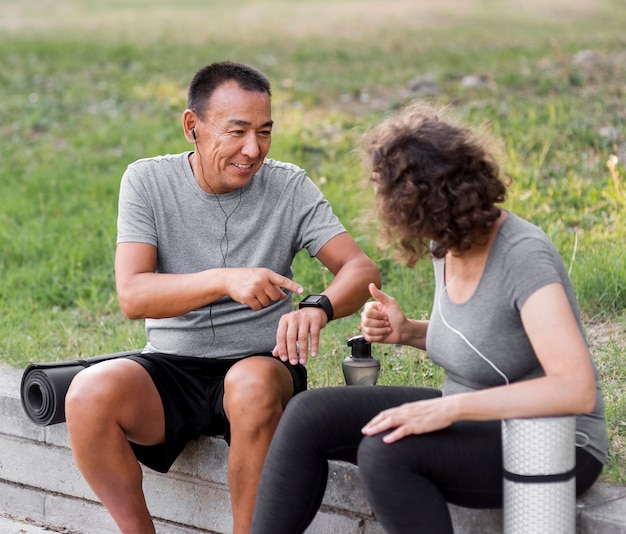
Aging is a natural part of life that often comes with certain health challenges, including an increased risk of injuries from falls. However, this doesn’t mean that nothing can be done to prevent them. With some practical steps and awareness, it’s possible to reduce the chances of injuries as we age.
### Why Falls Happen More in Older Adults
As we age, there are several reasons why falls become more common:
1. **Weakened Vision**: Aging often results in reduced eyesight, making it harder to see in dim light or identify tripping hazards. This happens because less light reaches the retina.
2. **Loss of Balance**: Reduced flexibility, coordination, and balance are common issues linked to a less active lifestyle, making older adults more prone to falls.
3. **Unsafe Home Environments**: Improperly arranged furniture or unsafe home interiors can pose significant risks. Adjustments to the home can make a big difference, especially for seniors living alone.
4. **Medication Side Effects**: Medications can cause dizziness, drowsiness, or blurred vision, which increase fall risks. Blood-thinning medications can make injuries even more severe.
5. **Chronic Health Problems**: Conditions like arthritis, diabetes, and cardiovascular diseases can affect mobility and balance, making falls more likely. Cognitive issues like dementia also heighten the risk of disorientation and accidents.
6. **Changes in Fluid and Bone Health**: Aging reduces the body’s ability to adapt to changes or recover from injuries. Fragile bones due to calcium or vitamin D deficiencies also increase the risk of fractures.
7. **Natural Decline**: Aging affects muscles, reflexes, and overall physical capacity, making it harder to prevent injuries from quick movements or posture adjustments.
8. **Motor Vehicle Accidents**: Older adults are also at a greater risk of accidents involving vehicles, whether as drivers, passengers, or pedestrians, due to slower reflexes and diminished senses.
### How to Prevent Injuries as You Age
Here are some simple, proactive steps to help reduce the risk of injuries:
#### 1. **Check Your Vision Regularly**:
Regular eye exams, ideally twice a year, are vital for keeping vision sharp. Address common issues like cataracts and glaucoma early on to prevent complications. Keep your glasses updated and use appropriate aids when necessary.
#### 2. **Take Care of Your Hearing**:
Hearing loss can make it harder to notice hazards like approaching cars or alarms. Get your hearing tested annually and use hearing aids if needed.
#### 3. **Maintain Mental Health**:
Cognitive health plays a critical role in reacting to dangers. Stay mentally active by engaging in puzzles, brain games, or activities that challenge your mind. Family support is also crucial if cognitive issues like dementia arise.
#### 4. **Understand Medication Side Effects**:
Be mindful of side effects that may cause dizziness or drowsiness. Talk to your doctor about safer alternatives or adjustments if your medication poses risks. Avoid operating vehicles or machines after taking potentially impairing medications.
#### 5. **Stay Physically Active**:
Regular exercise helps maintain muscle strength, improve balance, and enhance flexibility. Activities like walking, light weight-bearing exercises, or yoga can strengthen bones and reduce the risk of falls.
#### 6. **Drive Safely or Avoid Driving**:
If you drive, always wear a seatbelt, and avoid driving when fatigued or after consuming medications or alcohol. If driving feels unsafe, consider reducing or stopping altogether while looking into alternative transportation options.
#### 7. **Optimize Home Safety**:
– Keep the home well-lit to prevent tripping hazards in dark areas.
– Install grab bars in bathrooms and secure handrails on stairs.
– Consider slip-resistant rugs and ensure furniture is arranged to provide a clear walking path.
– For older adults with cognitive challenges, use appliances with automatic shut-off features to reduce risks.
#### 8. **Get Enough Rest and Eat Right**:
A proper diet rich in calcium and vitamin D strengthens bones, while adequate sleep keeps the body rested and alert.
By following these steps and offering care and attention to older adults in your life, aging can become a more comfortable, safe, and fulfilling phase. Proactively addressing safety concerns can significantly reduce the fear of falls or injuries, enabling seniors to lead more independent and confident lives.